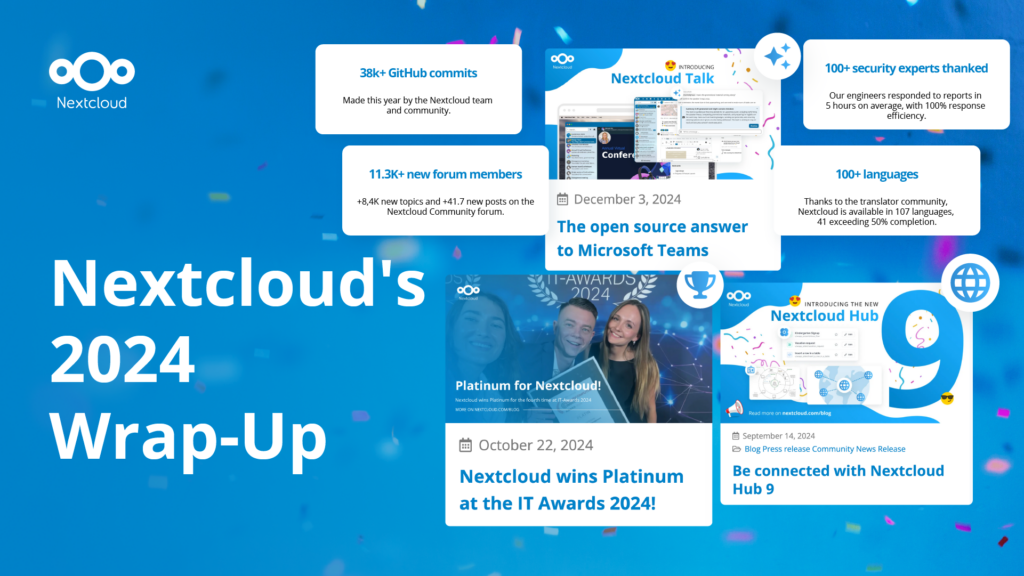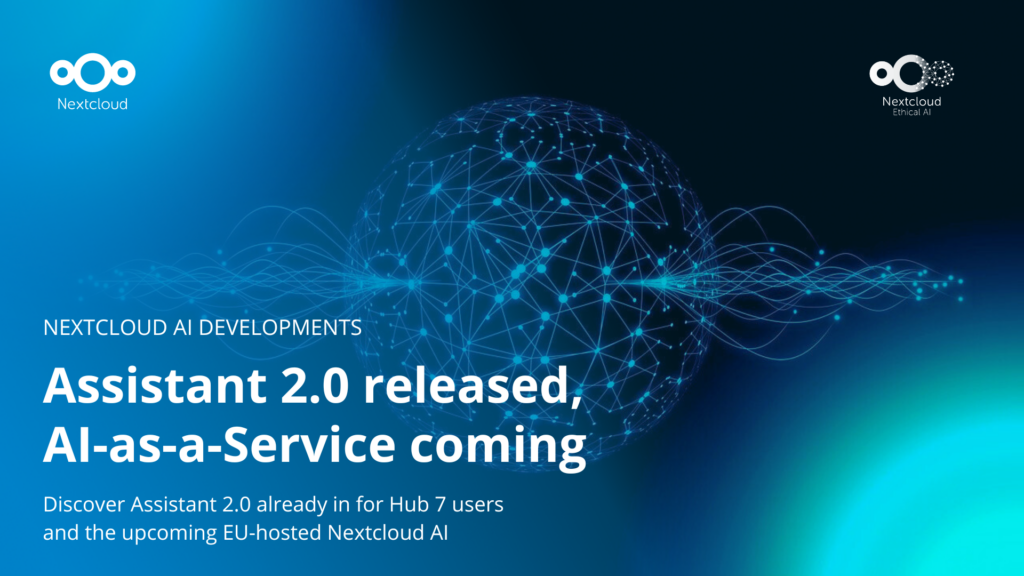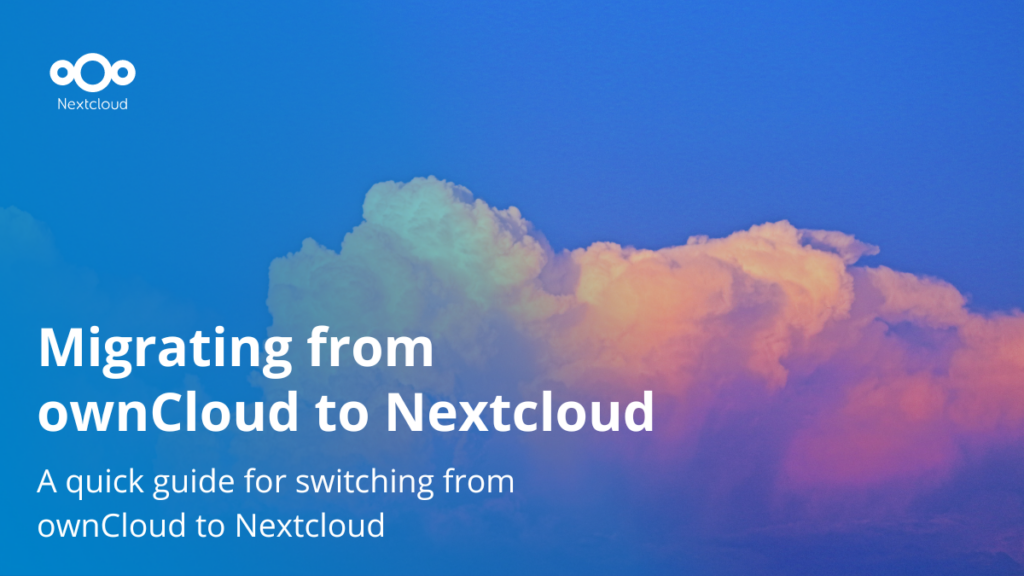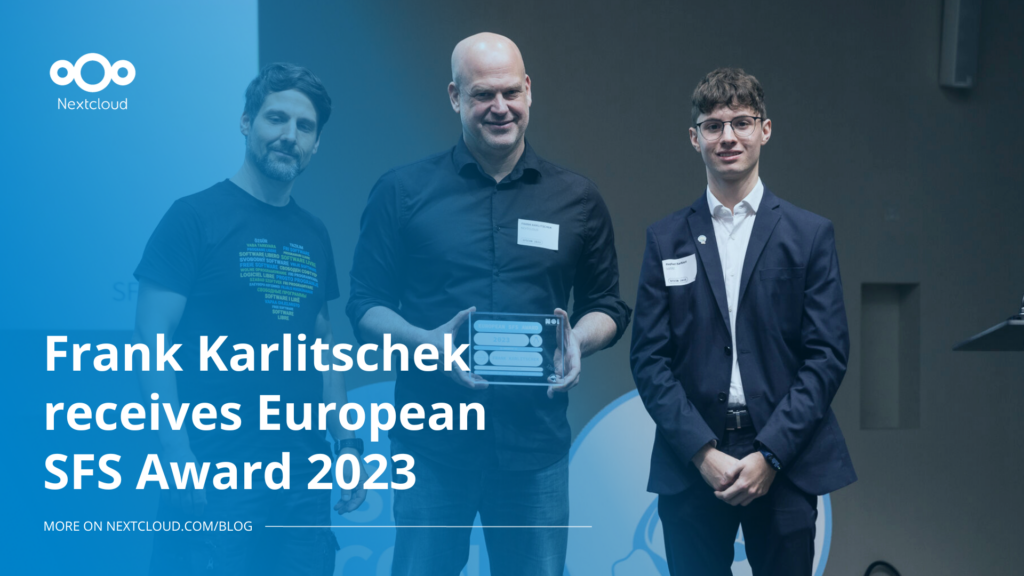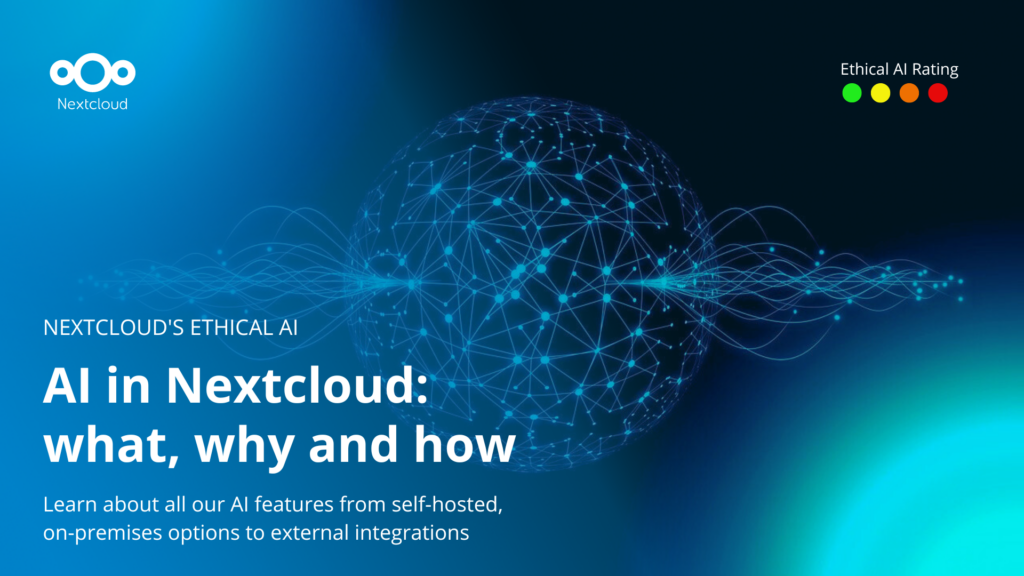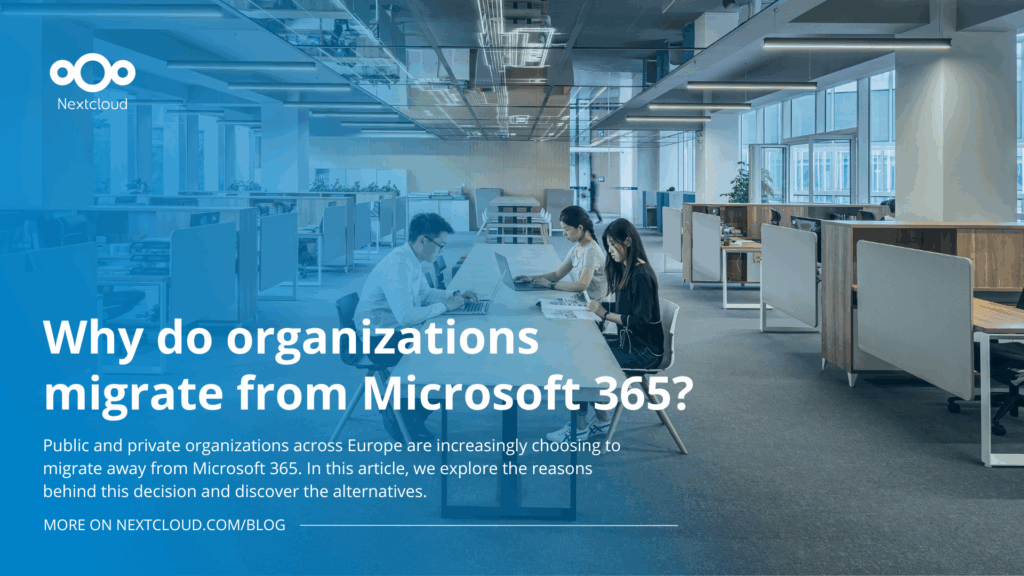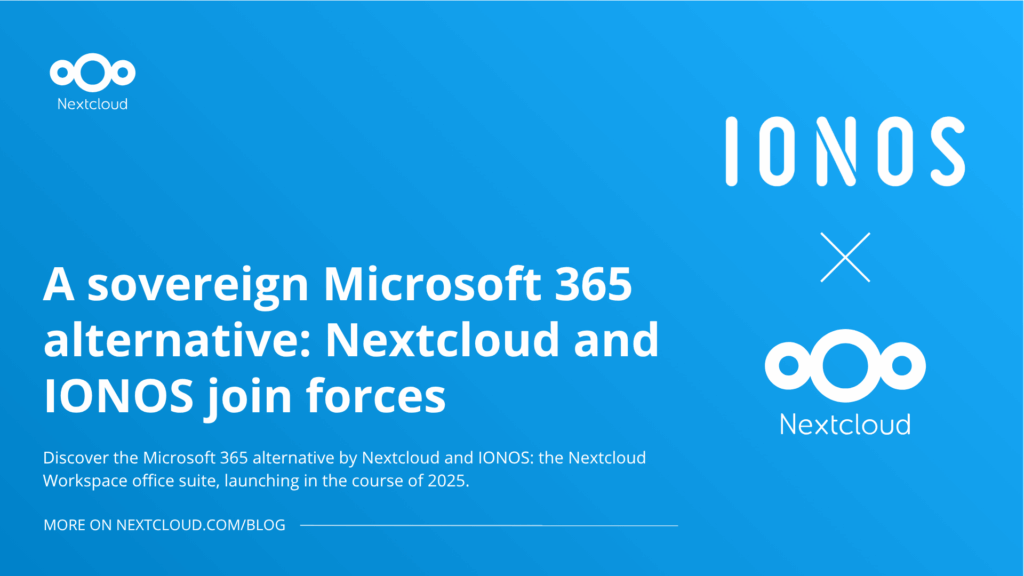EU and US government agencies converge on conclusion: US cloud platforms not GDPR compliant
We have covered the risks of public clouds frequently and governments seem to take notice. While the German Federal Government has already decided to rely on a Nextcloud-provided, private cloud solution, other governments are still searching. Many rely on US cloud services and, like the Dutch recently found out, have to conclude that these leak data. Now the Swedish government has essentially concluded US clouds are not GDPR compliant while US privacy regulators admit they haven’t been able to do any oversight in the last two years.
It is time to take back control over enterprise data in Europe!
the use of services delivered by US controlled
entities is in breach of GDPR
The Swedish Government Procurement Office
Incidents and reports
The Dutch incident, involved data, including what people wrote in documents and the subject of emails, being collected on US servers for diagnostic purposes. A report from the ministry of Justice noted that the use of Microsoft’s solution “brought high risk for the privacy of the users”.
In Sweden, the government procurement office published a report which confirmed that the use of services delivered by US controlled entities is in breach of GDPR Articles 44 to 50 in many ways. This was later confirmed again:
The Swedish Social Insurance Agency, one of the largest authorities with 14000 employees, concludes that there is a conflict between the Cloud Act and GDPR.
American cloud solutions therefore cannot be used neither for confidential information, nor personal data.
Furthermore, they see cloud storage of public sector data as giving up sovereignty.
Link to original article and link to a English PDF translation
for 20 months the board had no quorum,
it has insufficient funding and it doesn’t
receive the information its entitled to
The state of US Privacy oversight
Now, the US government’s Privacy and Civil Liberties Oversight Board (PCLOB) has published a set of statements made by the members of the board. From the statements, it appears that PCLOB hasn’t been able to operate to its full capacity and exercise its oversight duties as for 20 months the board had no quorum, it has insufficient funding and it doesn’t receive the information its entitled to from the Intelligence Community which would allow it to perform its duties.
The statements confirm also that several intelligence operations affecting EU citizens have been ongoing:
“The permitted purpose of surveillance under E.O. 12333 is quite broad, encompassing all activities and intentions of non-U.S. persons. This broad authority has resulted in broad surveillance programs, including ‘Co-Traveler’, through which the U.S. captured billions of location updates daily from mobile phones around the world, and ‘Muscular’, through which the NSA intercepted all data transmitted between certain Google and Yahoo! data centers outside the U.S.”
In another section the collection from third party “data brokers”, that could be anything from credit rating agencies to web sites analytics, used for “big data” analysis has drawn their attention:
“We are particularly concerned with the possible disclosure by data brokers to governmental entities of metadata which, if sought by the government directly from a communications service provider, could not be disclosed to governmental entities without legal process.”
The board noted they only knew what was happening due to the Snowden revelations and they have since been kept in the dark: “Now, nearly six years removed from the Snowden revelations, we are receiving very little new information.” Moreover: Although the government often defends its foreign intelligence surveillance authorities as important tools in its effort to detect and prevent terrorism, the reality is that the authorities sweep far more broadly.” So what else is collected and what is it used for? “The extent of the government’s use of its surveillance authorities to target journalists, dissidents, and others not engaged in wrongdoing is not known.”
Europe has noticed
It is probably not a big surprise that the current situation hasn’t gone entirely unnoticed. The European Data Protection Board (EDPB) stated in January of this year: “As a conclusion, the EDPB is not be in a position to conclude that the Ombudsperson is vested with sufficient powers to access information and to remedy non-compliance, and it can thus not state that the Ombudsperson can be considered an ‘effective remedy before a tribunal’ in the meaning of Art. 47 of the Charter of Fundamental Rights.”
And Giovanni Buttarelli, European Data Protection Supervisor (EDPS), stated in a recent interview:
“At the moment there is too much power in the hands of a few mega tech companies and governments. We need to decentralise the internet, give more power to people over their digital lives. Engineers have a valid voice but they need to be part of a conversation with lawyers, ethicists, experts from the humanities. IPEN, our initiative, seeks to do this.”
It isn’t unlikely action will come – for example, a challenge to the Privacy Shield regulation. If that goes through, companies currently betting on it will have to scramble to find other vendors and get their data back in Europe.
What does it all mean
Recapping the statements by the US and EU government, we can conclude:
- The US’ oversight wrt privacy and surveillance is severely lacking, or entirely absent.
- What they can tell us is that:
- There is ongoing data collection of European Citizens
- That data is collected far beyond what would be needed for anti-terrorism purposes, but it is unclear what it is used for
- The collections and disclosures include data from ‘data brokers’, think Google, Facebook, credit card companies and so on
- European institutions are slowly figuring this out.
- Germany is moving to a self-hosted, federal cloud
- Sweden has concluded that the use of US cloud services is not GDPR compliant
- Pan-European organizations like European Data Protection Board and the European Data Protection Supervisor are also warning about it
It seems safe to say that, given the problem is now widely acknowledged, organizations still putting sensitive data abroad face a growing legal risk and should be searching for solutions that keep data under their control.
How to avoid the risks
Self-hosting data continues to be the easiest way to be compliant with privacy regulations. Of course, self-hosted solutions have to be competitive to the cloud services offered by US vendors.
By providing an extensible, flexible content collaboration platform, Nextcloud offers a solution for organizations looking to modernize while not losing control over their data.
Nextcloud makes data available to users wherever it is. No need for new storage solutions or moving all data over. Easy integration and quick deployment brings organizations immediately in a compliant, secure state.
Secure with a low barrier to entry
Its familiar, easy to use interface on web, mobile and desktop allows users to work efficiently and be confident everybody has access to the same, latest version of data. Its enterprise capabilities ensure IT maintains full control over sharing, retention and availability of data within and across the boundaries of the organization.
Decentralized and hybrid
Last but not least, Nextcloud is a perfect fit for a Hybrid Cloud strategy, enabling universal access to data irrespective of where it is stored: on an internal network, in the cloud or even at a partner. Through Global Scale, it is possible to host multiple separate Nextcloud servers to ensure data locality rules are while inter-server sharing and encryption of unsafe storage ensure data is both safe and seamlessly accessible at all times.
Learn more about how Nextcloud solves the problem of unsecured and uncontrolled sharing of data in modern organizations.
Thanks to Paolo Vecchi for his research










